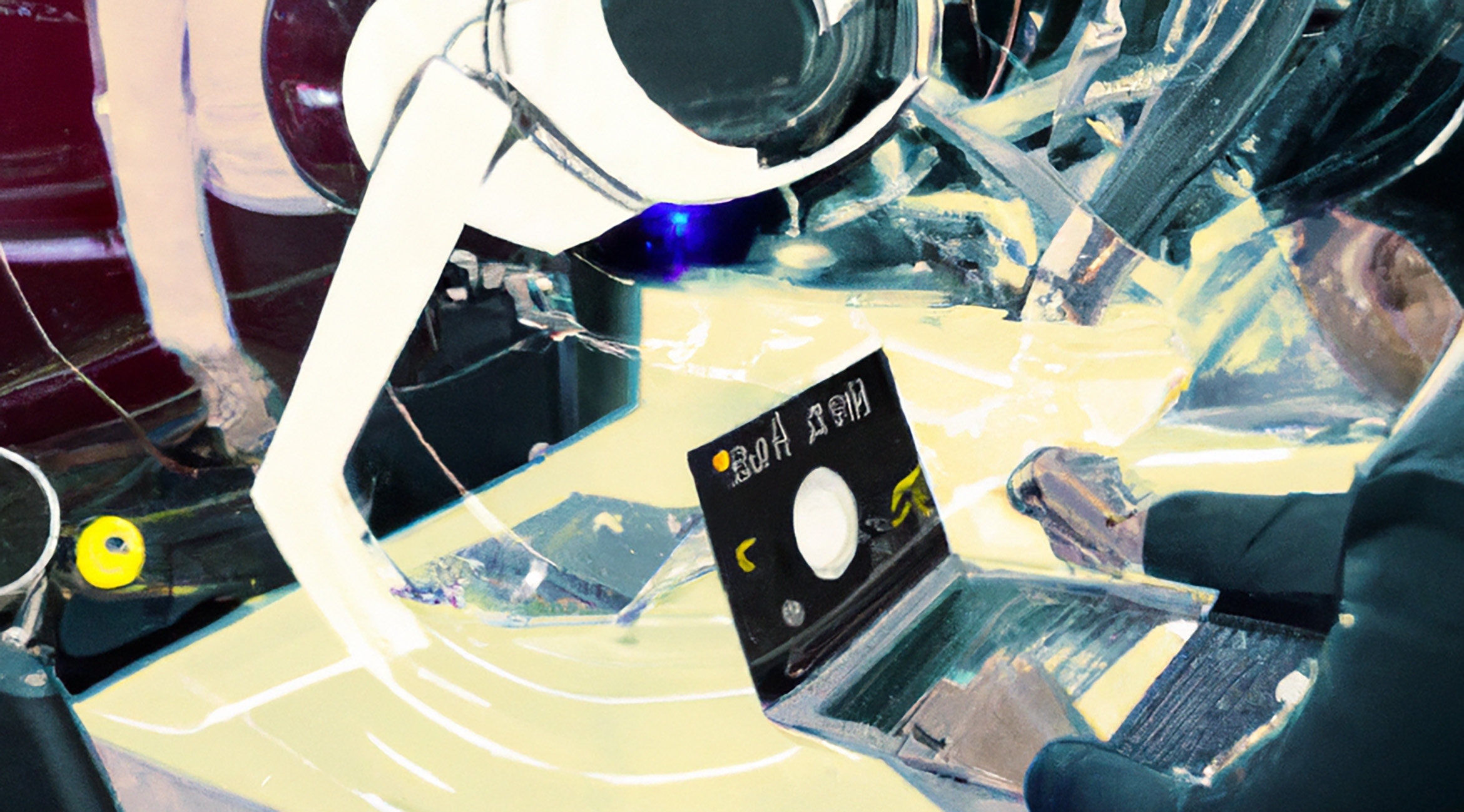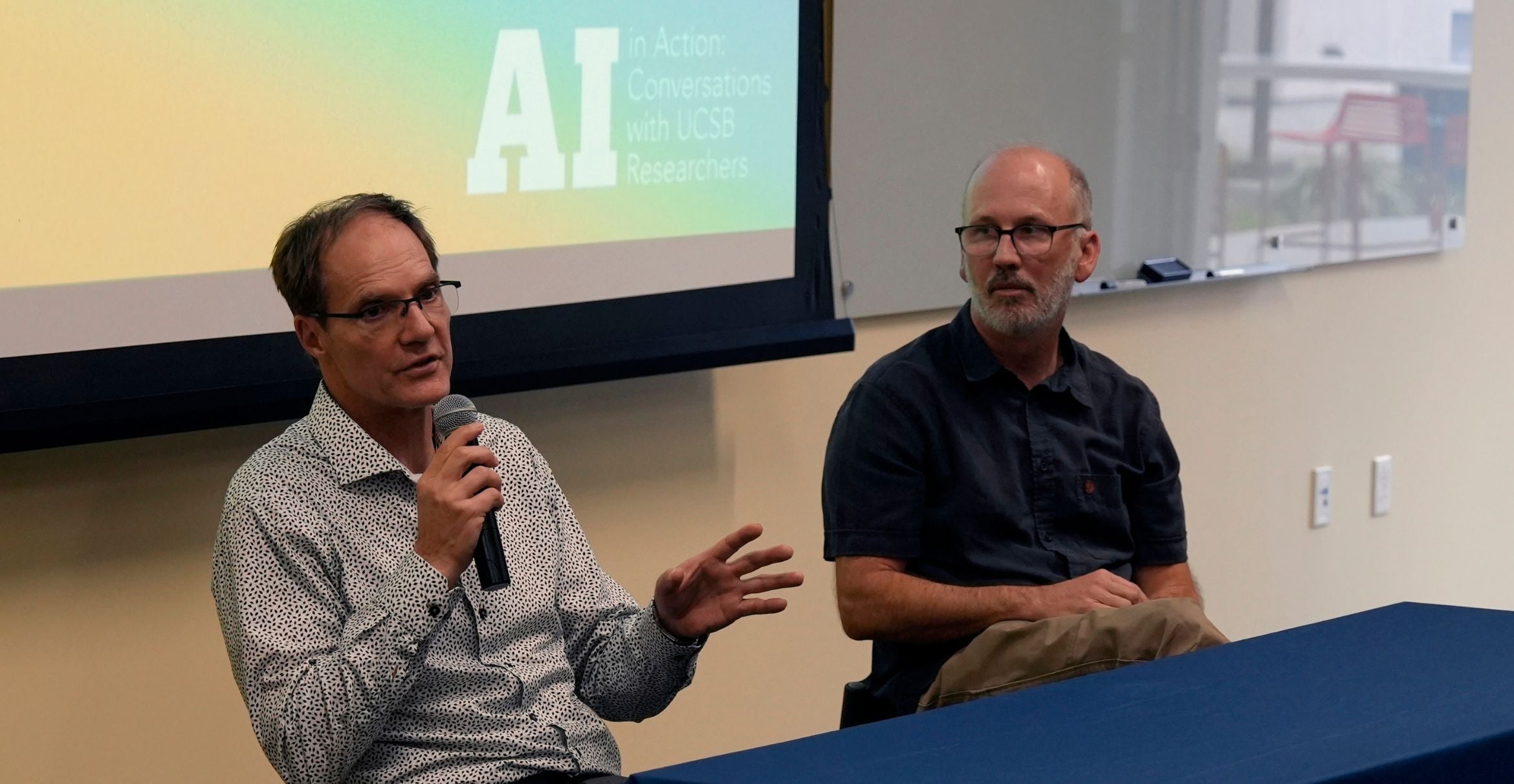
A team of UC Santa Barbara graduate students advised by computer science professors Xifeng Yan and William Wang have made their mark in the world of artificial intelligence (AI). GauchoAI placed second in the two-year Amazon Alexa Prize SimBot Challenge. The team won $100,000, which they plan to use to purchase a robot and implement the system they designed.
University of Michigan’s SEAGULL team was the first-place winner.
“The Alexa Prize SimBot Challenge is widely recognized as one of the most prestigious AI competitions in the world, requiring teams to have a deep understanding of three computing disciplines: language, vision and robotics,” said Wang, GauchoAI’s founding faculty adviser. “I’m extremely proud of the GauchoAI team for their achievement in the competition, which included the top universities in computer science.”
“Our bot not only secured the top position in the user-feedback stage but also exhibited exceptional simplicity, so that it can more easily be generalized in complex environments,” said Yan. “The GauchoAI team recognized that instead of pursuing incremental improvement on the existing methods, it is far more important to prioritize the discovery and experimentation of new insights pertaining to the challenge.”
The SimBot Challenge is aimed at advancing the science of embodied AI agents — agents that interact with the environment through a physical body within that environment — that can engage effectively with humans, understanding, learning and collaborating to achieve their given missions. Resa Ghanadan, a senior principal scientist in Alexa AI and the head of the Alexa AI Prize, said that the competition reflects “Next-generation autonomous AI assistants will need to be robust and versatile, and capable of learning and solving challenging tasks that require multimodal interactions with humans, other agents and the environment.”
GauchoAI was one of five teams selected for the finals from an initial field of nine — eight from the United States and one from Spain. The team developed a user-centric, proactive embodied virtual robot assistant that set a new standard in this high-level competition by creating a solution that not only responded to commands, but also anticipated user needs.
“Our virtual robots should go beyond simply following human instructions,” said team leader Jiachen Li, a second-year Ph.D. student from the UCSB Natural Language Processing (NLP) Group. “The UCSB team set itself apart by placing paramount importance on the user experience. We leveraged Amazon’s text-to-speech technology to inject excitement into the robot's response, enhancing the user experience. And we endowed our robot with the advanced ability to analyze interaction history to discern user intent, enabling it to proactively suggest potential next steps tailored to the user’s needs."
Li was joined on the GauchoAI team by third-year Ph.D. student Tsu-Jui (Ray) Fu, first-year Ph.D. student Deepak Nathani, and second-year computer science Ph.D. student Xinyi Wang. TFirst-year Ph.D. student Alfonso Amayuelas, second-year Ph.D. student Yujie Lu, and newly graduated master’s student Eddie Zhang, who will begin his doctoral studies at Harvard University this coming fall, contributed to the early stages of the competition.
"It was my great honor to lead this team of brilliant student colleagues in the Alexa SimBot Challenge, each of whom brought tremendous innovation to the project,” Li said. “Securing second place is a testament to our team's creativity, dedication and ingenuity, as well as a worthy tribute to the empowering guidance of Professors Yan and Wang."
Both Yan and Wang are widely recognized NLP leaders. In a statement, they said, “We are extremely proud of GauchoAI’s achievement. The team's tireless work, innovation and commitment have truly embodied the spirit of UCSB. Their success in the competition showcases both our students’ talent and dedication, and the incredible potential that exists within the realm of AI.”
Shelly Leachman
Editorial Director
(805) 893-2191
sleachman@ucsb.edu




